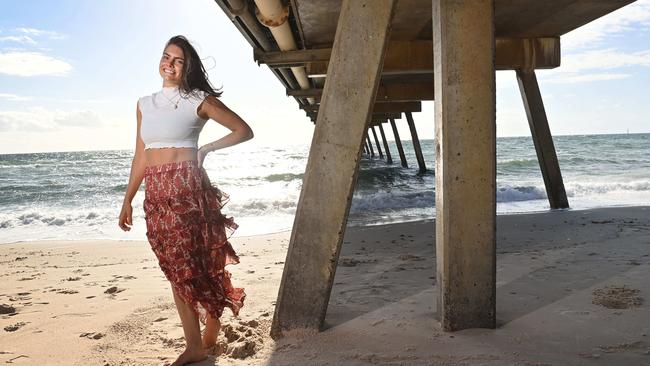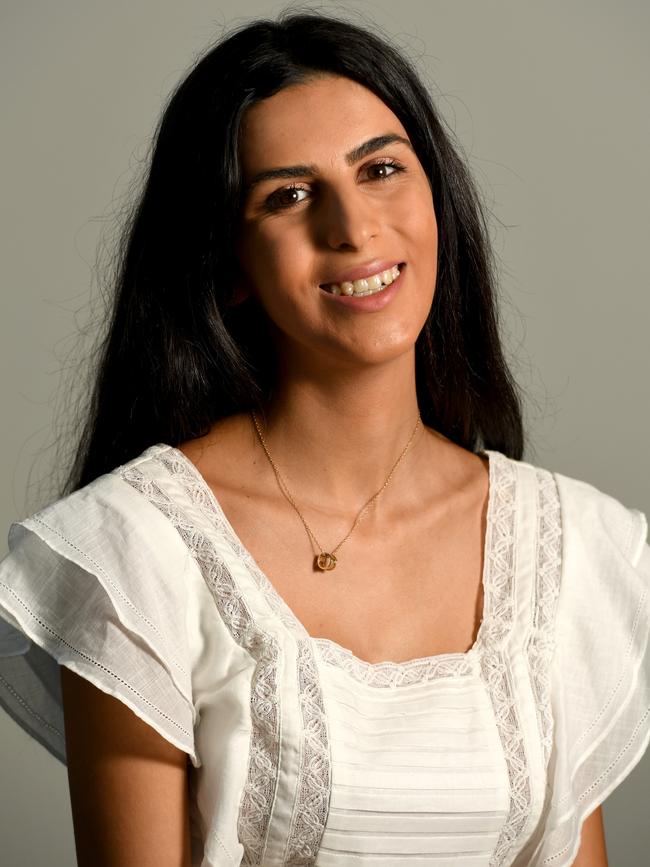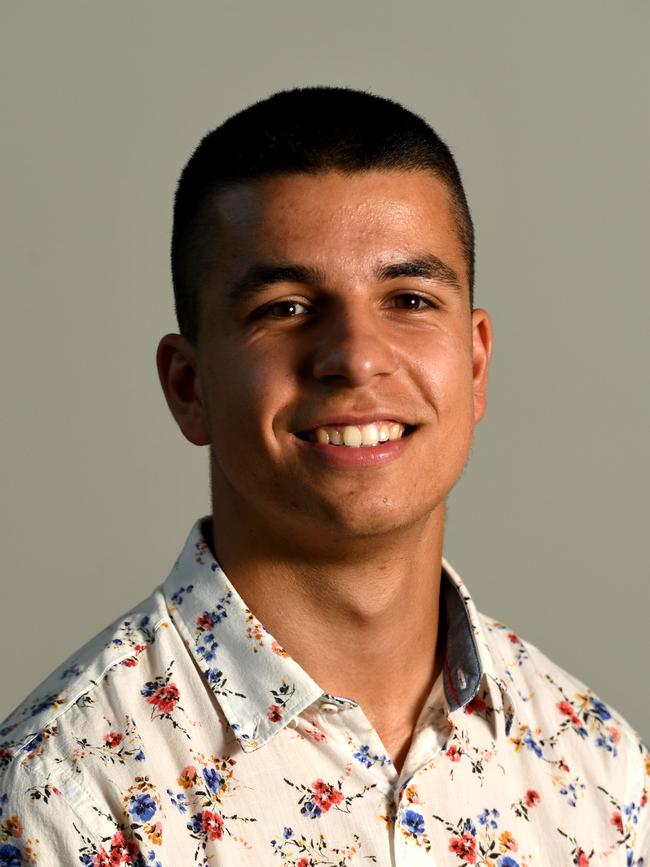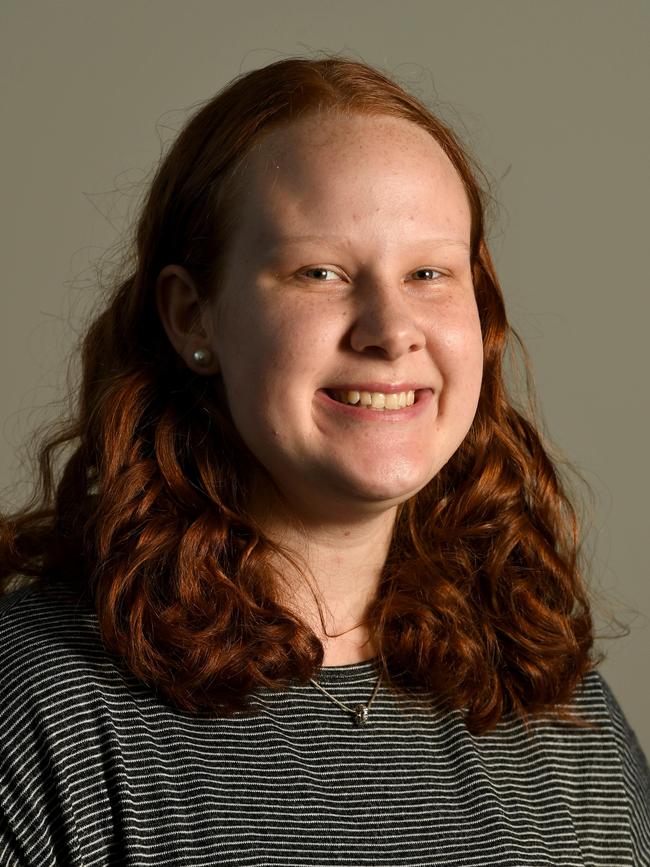SA’s brightest students’ biggest worries are climate change and harm from social media
They’re inheriting a world under stress and a social media network which can hurt. SA’s top students want action not words.
Education
Don't miss out on the headlines from Education. Followed categories will be added to My News.
Fixing a damaged planet and dealing with the negative effects of technology and social media are issues that must be addressed, South Australia’s leading school graduates say.
Job prospects which were growing in health, renewable energy, space and cyber but lacking in other sectors were also highlighted in a survey of the students who were commended by the Governor for their SA Certificate of Education results.
The students were nominated by their schools and selected by the SACE Board for their excellent performance.
Climate change and environmental degradation were cited most frequently as the biggest challenges facing their generation.
“Australia should be taking a leading role, not dragging its feet,” said Sam Heathershaw, graduate of Woodville High.
David Sutton, from Xavier College, said climate change should be taken seriously “not just used as an election promise for politicians”.
Sam Nitschke, from Loxton High, urged laws to make manufacturers responsible for waste and recycling “rather than placing that responsibility on the consumer and government”.

Ruby Liptak, from Westminster School, called for biodiversity to be a compulsory subject from primary school.
The survey by The Advertiser asked the 28 commendation students to nominate the biggest issues but gave no suggested answers from which to choose.
After the environment, social issues were the most frequently cited concerns.
Young people faced issues of low self-esteem and feeling like they were failures because expectations were too high, said Martina Theodorakakos, a graduate of Walford Anglican School for Girls.
“Social media and globalisation certainly have played a part in worsening this situation,” she said.

Greta Matthias, of Modbury High, was worried about bad role models and media influence.
Pervasive negative messages and fear were creating “generations of anxious people who thrive on purposeless drama” instead of enjoying life in the moment.
One top student, who preferred to answer anonymously, called for high school students to be restricted from using social media.
Constance Kilkenny-Jones, from Heathfield High, said the damaging effects of social media causing young people to compare themselves to others should be countered by teaching positivity in primary and high schools.
Mental health, coping with the ongoing effects of COVID-19 and health care more generally were both cause for concern and opportunities for new jobs.
“Health, especially geriatric and aged care, is likely to see a high increase in demand,” said Filbert Christone, of Portside Christian College.
Olivia Walker, of Walford Anglican School for Girls, saw potential in health, education and tourism.
Many students expect growth in science and technology sectors.
Paras Stefanopoulos, of St Michael’s College, forecasts cyber security to be increasing important and recommended computer science be taught as a core subject.

Gianni Bergamin, of Rostrevor College, was among many students seeing jobs’ growth in the environmental challenge.
“The technology sector will have the most jobs for economic growth in SA as technology will be mapping a greener and more efficient future,” he said.
Silas Hansch-Maher, of St Ignatius College, also saw technology and renewable energy as key to jobs’ growth.
Will Hunter, from Kadina Memorial School, was optimistic about the space sector.
“There are many amazing opportunities on the horizon such as the Australian Space Agency which will be revolutionary for career prospects,” he said.
Others to back space included Sidhaarath Sellvakumaran, of Westminster, and Kate McKay, of Loreto College.
Ms McKay said “flexibility will be essential to future opportunities”.

Shreyans Sinhal, from St Peter’s, said there were many rewarding options in SA – but interstate offered more attractive jobs in finance and technology. This could be addressed by incentives and liaison with unis.
Trent Heaver, of King’s Baptist Grammar School, called for an internship system so more high school leavers could gain entry into good jobs without needing to first complete tertiary study.
Ms Kilkenny-Jones was worried that people without interest or skills in STEM, like herself, may never have a secure job.
The students expect SA’s population to grow to 2.25 to 2.5 million by 2025.
Almost every student expects to be driving an electric car by 2030.
“Drive may not be the right word; I believe we will travel in autonomous electric cars,” said Oliver Kleinig, of St Peter’s College.
However, Ms Matthias said she’d be happy to drive “a yellow Camaro with black stripes”.



